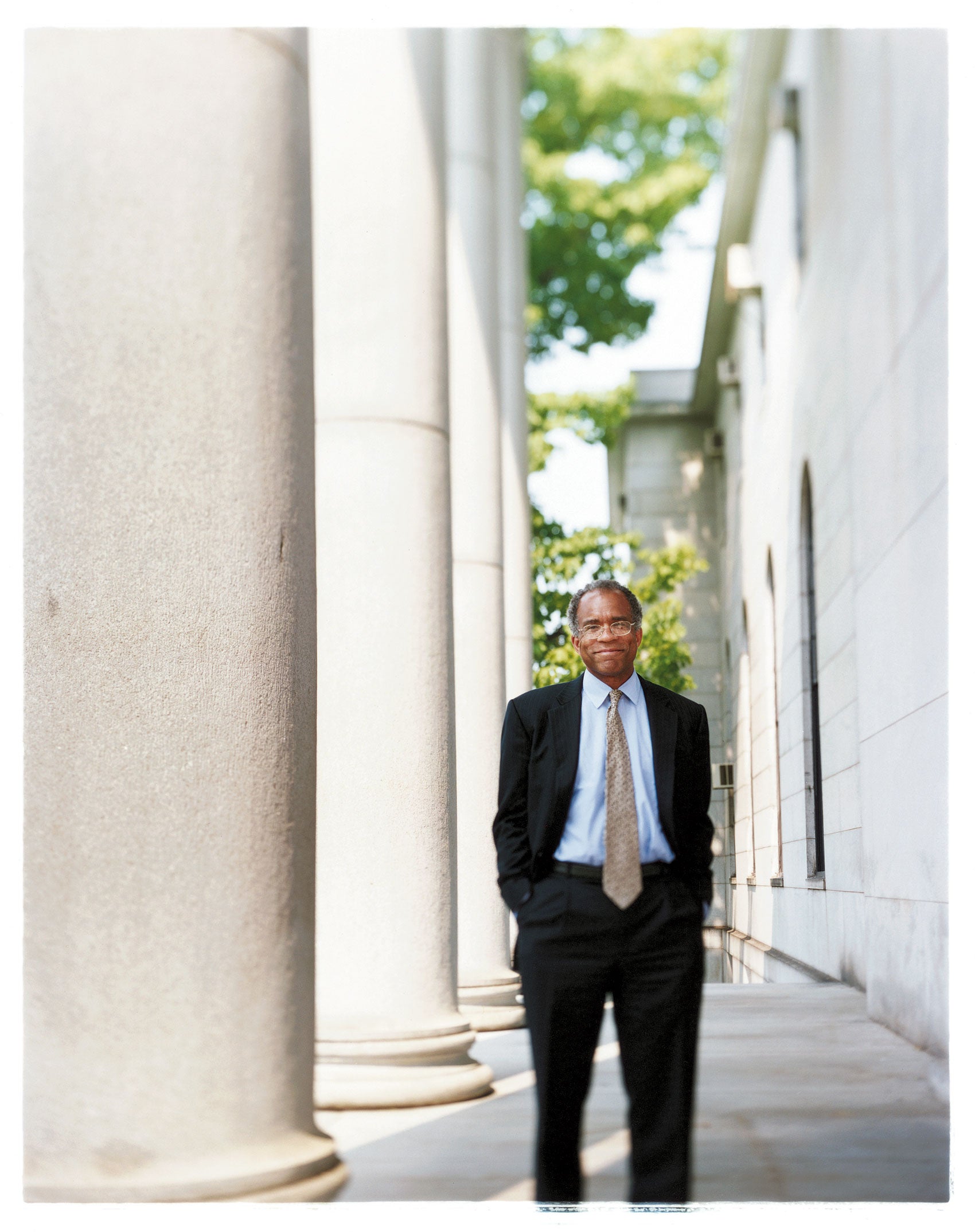Ask the Professor: Randall Kennedy
Who can lay claim to blackness?
Since presidential hopeful Sen. Barack Obama ’91 launched his campaign earlier this year, some have questioned whether Americans are ready to elect a black president. Others, in particular African-American writer Debra Dickerson ’95, have denied that Obama is truly black, since he is not the descendant of West African slaves. Professor Randall Kennedy is the author of several books on race in America and is currently working on another about the politics of racial betrayal and the use of the “sellout” label. We ask him to comment on the questioning of Obama’s blackness.
I completely disagree with this defining of who is black. But frankly, under all sorts of conditions, Barack Obama would be. When the great W.E.B. Du Bois, the first black to get a Ph.D. from Harvard, was once asked this question, he said his definition of who’s black is, in a Jim Crow South, who’s made to sit at the back of the bus? Well, if segregation were still in existence, there is no question but that Barack Obama would have to sit at the back of the bus.
There are other definitions. But most white people see him as black; most black people see him as black. And most important, he sees himself as black.
As for the idea that you have to be a descendant of slaves, there are lots of black people in the United States, and I guess some people know their family trees well enough to establish that, but a lot of people don’t.
You can’t say that you are a black American if you look in your family tree and it turns out that your forebears were slave owners? There were black slave owners. And what about free blacks? It’s not altogether clear that all the blacks who were initially brought over here were slaves. Suppose they were freed?
And then what about blacks from other parts of Africa? Not all the blacks who were sold as slaves in the United States were from West Africa.
Although I reject these definitions of who’s part of the group, I do think that some of the discussion about Obama and his background is related to what I’m tackling in my current book. I think the majority of black people will have great hopes riding with him and will intuitively be for him and be proud of him and want him to do well. There will be an appreciable number, however, because of the dynamics that I outline, who will be somewhat skeptical. They know that this guy has a white parent. They know that this guy went to Harvard Law School. Some people are going to ask themselves: Why is he so well-liked among all of these white people? Their antennae are going to go up. There is going to be a certain amount of anxiety. And I think some of the talk of Barack Obama’s racial authenticity is related to that. And that’s an issue that any black person attaining success in a multiracial environment will have to face.
